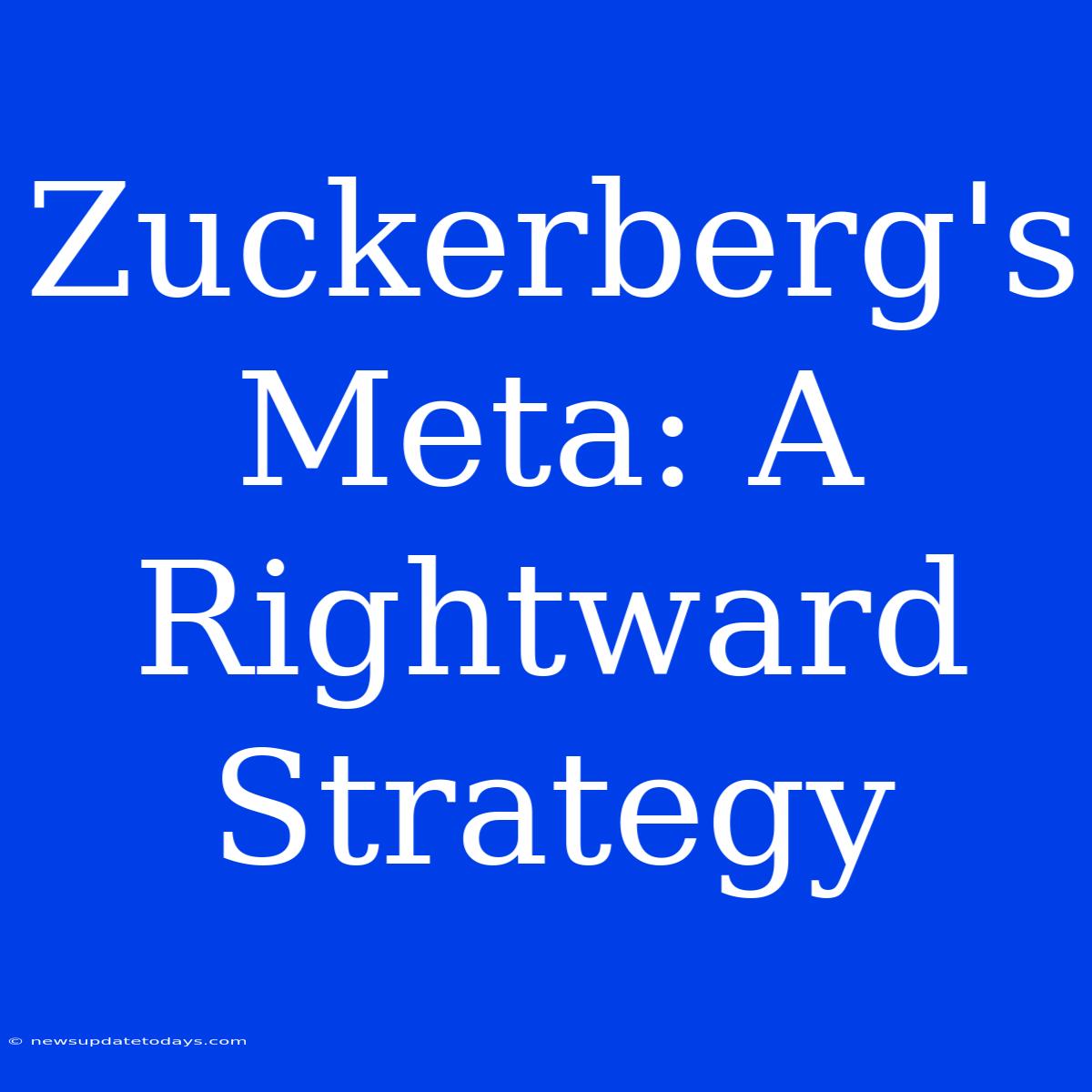Zuckerberg's Meta: A Rightward Shift? Navigating the Political Landscape
Mark Zuckerberg's Meta, once perceived as a champion of liberal values, is increasingly facing scrutiny for its perceived shift towards a more conservative or, at least, less overtly liberal, stance. This isn't a sudden U-turn, but rather a subtle evolution driven by several key factors, impacting everything from content moderation to political advertising. Understanding this shift is crucial for comprehending Meta's future and its implications for the broader tech landscape.
The Content Moderation Tightrope
One of the most visible aspects of this alleged "rightward" drift lies in Meta's content moderation policies. While initially criticized for being too permissive, the platform has since tightened its rules, particularly around misinformation and hate speech. Critics argue that this tightening disproportionately affects left-leaning voices and content, while conservative narratives often escape similar scrutiny.
This isn't to say that Meta is intentionally silencing liberals. Instead, the argument is that the current moderation mechanisms are biased, either through algorithmic flaws or the inherent subjectivity in defining "harmful" content. This leads to a perception of uneven enforcement, fueling accusations of a rightward bias. The challenge for Meta is to create a system that’s both effective at combating harmful content and perceived as fair and impartial across the political spectrum.
The Allure of Political Advertising
Meta's lucrative political advertising business also plays a significant role. While the platform has introduced measures to improve transparency and combat disinformation in political ads, concerns remain. The sheer volume of political advertising, coupled with the complexity of tracking its effectiveness and potential impact on voter behavior, raises questions about Meta's responsibility in shaping public discourse. Critics suggest that Meta's prioritization of profit over potential harm to democratic processes contributes to this perception of a rightward leaning.
Navigating the Regulatory Landscape
The evolving regulatory environment adds another layer of complexity. Governments worldwide are increasingly scrutinizing the power of Big Tech, leading to calls for greater regulation of content moderation and political advertising. Meta’s responses to these regulatory pressures, and the strategic decisions it makes in anticipation of further legislation, could further contribute to the perception of a rightward shift – a strategic move to appease certain political factions or preempt harsher regulations.
The Long-Term Implications
Whether Meta's actions truly constitute a “rightward shift” or are simply a reflection of navigating complex political and regulatory landscapes is a matter of ongoing debate. What is clear is that the platform's strategies significantly impact public discourse and the broader political climate. Meta’s ability to effectively address concerns about bias, transparency, and its role in shaping political narratives will be crucial in determining its long-term success and societal impact. Failure to address these concerns could lead to further erosion of trust and intensified regulatory scrutiny.
Keywords: Meta, Zuckerberg, Facebook, content moderation, political advertising, rightward shift, conservative, liberal, regulation, Big Tech, misinformation, hate speech, political bias, algorithmic bias.

